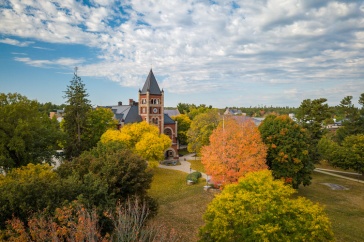
Are you looking for a fun class to take next semester where you will not only learn potential life skills, but also enjoy the company of those around you while learning something new? Here at the University of New Hampshire, with 100+ majors to choose from, there are plenty of fun classes available. Whether The Art of Zen Travel (TOUR 510) or Deflategate (INCO 460), you can always find an interesting class. You must be 21 years of age, however, to take one of the most popular courses.

HMGT 771, also known as International Wine and Beverage Management, has filled up early ever since its inception. With such high demand it’s no wonder this is a must-take course for upcoming juniors and seniors. Part of the Hospitality Management Program at the Peter T. Paul College of Business and Economics, the course gives students insight into age-old beverages, focusing on wine, but also covering beers (including Craft Beer) and spirits. Taught by Dr. Nelson A. Barber, the course discusses grape growing and processing in addition to wine production, sensory evaluations, marketing and wine service.

Although the course is fun, it is also rigorous, taking students through all of the major wine-growing regions of the world — both old and new — and teaching the differences between wine produced in distinct styles and from different regions. With an increased knowledge base, students are expected to learn about production as a means of appreciating the wine itself. Later in the semester, students taste wines produced from different regions and grape varietals (different kinds of grapes), rank them and write reflections on the wines they have tasted. With New Zealand, French, Austrian, and Italian wines represented alongside those from California and the Pacific Northwest, students learn about the terroir, or unique environmental characteristics, of vineyards, which affect grape flavor and sugar content as well as what grapes are viable or allowed and the resulting styles of wine produced.
The course also covers skills and knowledge directly applicable to the service industry. Students learn proper tasting technique, study suggested storage and service temperatures and whether the wine needs decanting, based on its age. By understanding these ideas, students learn how to appreciate wine as its producers intended it to be consumed. Students also learn how to pair wine with food based on the bottle description, grape varietal, intensity, and aroma.
-
Written By:
Devon Hamilton ’17 | UNH Tales














































